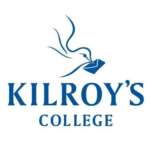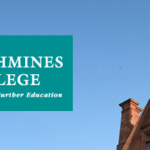Psychotherapy is a form of treatment that aims to assist clients in dealing with their mental or emotional disorders through open and honest communication. It is therefore essentially a talk therapy ; that is, its objective is to safeguard a client s well-being and self-understanding through interactive discussion rather than through drug prescription.
Though effective psychotherapists are trained to be attentive listeners, they must also be capable of interpreting a client s body language or tone of voice. Another important aspect of a psychotherapist s role is the ability to create a structured, professional environment in which clients feel secure and comfortable enough to talk about their personal anxieties, insecurities or problems.
What does psychology involve
While it is possible for learners to take part-time psychotherapy courses right up to postgraduate level, they will generally need to have previous training or experience in the field in order to do so. Those who do not have prior learning will need to begin at a more basic level of study.
An introductory-level course is a good place to begin for those with a general interest in the practise and applications of psychotherapy. Students on such a programme can expect to learn about the basic principles of the different psychotherapeutic schools of thought, such as Psychoanalysis, Cognitive Behavioural Therapy, Art Therapy, and Humanistic Therapy.
Should learners have their interest roused by some of the more short-term options, then they can choose to advance their learning by enrolling on a part-time Certificate in Counselling and Psychotherapy programme, which will provide training in understanding human growth, emotional development and basic counselling and psychotherapy models. The certificate option is ideal for those who are considering a diploma or degree course and would like to obtain a broader understanding of the subject before committing to a longer period of study. Among the areas covered on a certificate course are Counselling Skills, Psychodynamics and the Therapeutic Process.
Also available to those with little or no experience in the area is the Diploma in Counselling and Psychotherapy programme. The aim of the diploma course is to provide students hoping to work in the areas with a solid foundation in the practice and principles of counselling and psychotherapy. The course will examine such areas as how the mind works, how people interact with and relate to one another, and how and why people experience difficulty in their lives.
The natural follow-up for graduates of the diploma course is the Higher Diploma in Psychotherapy Studies, which is a more intensive academic programme. As a standalone course, the programme provides a comprehensive overview of the fundamentals of psychotherapy and psychoanalysis and their applicability to a variety of institutional and employment settings. However, it also acts as a rigorous platform for those considering further studies at master s degree level. The course is suitable for those with clinical experience but without a primary degree. Applicants must be at least 23 years in January of the year of application.
The part-time MA in Psychotherapy (or Psychoanalytic Psychotherapy) is designed for those looking to secure employment as professional psychotherapists or those who wish to apply psychotherapeutic principles to their working environments and employment practices. Typical lecture modules include Philosophy of the Mind; Society, Culture and Mental Health and Clinical Practice and Supervision. In addition to lectures, students will be asked to attend seminars in which they will research and analyse clinical case studies and discuss course material. For most master s-level Psychotherapy programmes, it is important that students undergo their own psychotherapy sessions. This is to ensure that students have attained a sufficient level of self-awareness and an understanding of their own motivations before they begin practising on others. Furthermore, they will also be expected to have procured clients and begun their own clinical practice within the first year (part-time masters are generally of two years duration). Some course providers will also arrange clinical placements for students.
Why do it
Psychotherapy is a stimulating, challenging and ultimately rewarding area of study. This is because people are endlessly fascinating the links between their behaviour, thoughts, interactions and reactions (and the things than can influence these) can be incredibly complex. Learning to make some sense of it all can help bring about in a change for the better in a client s life.
What comes next
Qualified psychotherapists will be eligible to seek employment in areas such as the voluntary sector, primary care settings, social care settings and educational settings.
Training in the area of psychotherapy can also be of benefit to those who may not necessarily wish to practice as psychotherapists but who wish to expand their level of expertise in inter-personal relations, such as those working in human resources, management, training, and so on. Developing a good understanding of psychotherapeutic principles can also be very helpful in navigating the demands of the workplace and in enhancing employment techniques and practices, as well as in dealing with people on a general, day-to-day basis.
At a glance
Short-term Introductory Psychotherapy courses run for around 10 weeks, while a part-time Diploma in Psychotherapy course can be completed within 12 weeks. A Higher Diploma in Psychotherapy programme will last for one year and part-time MA in Psychotherapy programmes are run over the course of 2 years.


















